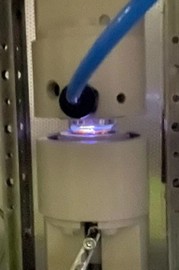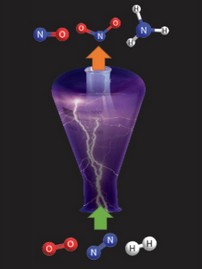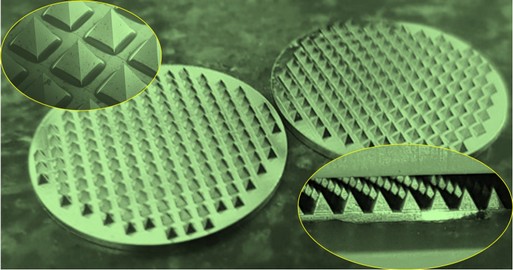1st Period
Results > Progress 1st Period
Public Summary (May 2021) - 1st Period [01.04..2019-31.03.2021]
Catalyse the transformation to a more sustainable and innovative society requires to develop innovative technologies in chemical and energy transformation/utilization areas which use directly renewable energy to substitute the use of fossil fuels. To implement this vision it is necessary to develop novel technologies for the production of chemicals, fuels and chemical energy storage vectors that allow to overcome the current limitations in the production of renewable energy.
The ambition of SCOPE proposal is to develop the scientific bases for a ground-breaking approach (based on catalysis-plasma symbiosis) for direct chemical syntheses using renewable energy of large-volume key chemicals or energy vectors. Although the core of the project is plasma-catalysis, we include also some comparative analysis of photo- and electro-catalysis to have a better understanding of how design effective "reactive" catalysts, because several aspects common to these three approaches, as outlined above. We have thus the ambitious aim to put the scientific bases for this new catalytic chemistry which is at the core of the energy and chemistry transition.
We have three target reactions: (i) N2 fixation. key reaction for production of ammonia (NH3) and NOx-made fertilizers; (ii) CH4 valorization to produce longer C-chain hydrocarbons; CO2 conversion to liquid solar fuels.
Work performed
SCOPE project started in April 2019 and is now at the end of the second year of the project: Still on-going Covid-19 pandemic situation caused strong delays in all PI labs, and cancellation of the planned mobility and meeting activities. The general project organization is the following:
- at UniME (cPI) are developed the novel catalysts/electrode, as well as comparative testing with also photo- and electro-catalytic conversion, besides to the development of novel reactor concepts for plasma-catalysis,
- at UANT (PI1) is studied the physico-chemical modelling of plasma-catalysis systems, and made experiments on different modalities of plasma generation and interaction with the catalyst
- at UNIWAR (PI2, I3), and associated TUe and UoA, is investigated the reactor optimization and simulation, including the development of a novel approach for spatio-temporal characterization of concentration profiles in plasma-catalysis, and the sustainability-driven assessment of the processes, including distributed manufacturing scenarios, diverse credit accounting for co-valorisation, and supply chain / circularity innovation.
The synergy of the PIs competences is thus realized over the entire dimensional-scale level, from nano-scale (at catalysis level), to micro-scale (at the modelling level), to milli-scale (reactor design) and to mega-scale (plant and technology design).
The project is organized in six workpackages (WPs), of which the first WP (WP1: Identify the mechanisms of controlling the selectivity) and in part WP3 (Fast-modulated operations in the presence of plasma), WP4 (Advanced processes for direct conversion of target small molecules) and WP5 (Intensified process-sustainability opportunities) were active in the first two years, in addition to WP6 (Coordination and Dissemination).
The scientific work performed during the first two years of the project was in line with the planned activities described above. In addition to about 25 publications realized within the project in the first two years, and about 25 additional publications on closely related aspects, many dissemination/communication/outreach/training activities have been made, notwithstanding pandemic limitations.
Important actions regarding the implementation of synergy is the realization of two joint international Doctorates:
- the first is the Doctorate ACCESS (Advanced Catalytic Processes for using Renewable Energy Sources), accredited as International and Intersectorial (industrial) Innovative Doctorate Course from the Italian Ministry of University and Research, and stemming directly from the ERC Synergy SCOPE. The Consortium involves UniME, UANT and TUe, and the company NEXTCHEM, while UNIWAR and UoA PIs participate in the Doctorate Board. The procedure necessary to start the Doctorate makes possible to start it only from 1st November 2020.
- the second is a joint Doctorate between UniWAR and UoA for PhD students in co-tutelle
Progress beyond the state of the art
The following progresses beyond the state of the art can be mentioned:
CPI/UniME:
- A new type of plasma-catalytic reactor is under development, based on confined generation of nanoplasma within a semiconductor TiO2 nanomembrane, to couple nanoconfined plasma with light illumination.
- A new reactor concept of gas-phase photocatalytic conversion of CO2 based on TiO2 nanomembrane.
- Development of novel improve materials (based on iron/nanocarbons and MXene) for the challenging reaction of N2 conversion to NH3 in electrocatalytic conditions (NRR), used as benchmarking. This understanding will be the basis to understand better plasma-catalysis.
PI1/UANT:
- Development of a new 0D chemical kinetics model for i) CO2 and CH4 conversion, ii) plasma-catalytic NH3 synthesis, iii) NOx synthesis, to support experiments in a novel gliding arc plasmatron (GAP), iv) in a CH4/CO2/N2/O2 plasma, to support experiments on dry reforming of methane (DRM) in the GAP in the presence of N2 and O2.
- Development of fluid dynamics models for two different novel gliding arc plasma sources (magnetically stabilized and dual-vortex plasmatron),
- DFT calculations to study for the very first time the combined effect of electric fields, surface morphology, and surface charges, important in plasma catalysis, on CO2 activation over various Cu catalyst surfaces.
- Development of a novel microkinetic surface model for plasma-catalytic non-oxidative coupling of methane.
PI2/UNIWAR, TUe:
- Development of an IR TDLAS equipment for spatiotemporal data acquisition with a plasma jet reactor
- Modelling of a photochemical reaction over a plasmonic AuAg/TiO2 catalyst under fast modulation in temperature and light intensity to explore the effect of transient operation; an optimal frequency and amplitude were identified,
- Several magnetic (nickel ferrite) nanocomposites with different heating rates under inductive heating have been developed.
- Assessed the thermodynamic potential of a sustainable plasma-assisted nitrogen fixation process for co-production of ammonia and hydrogen.
I3/UNIWAR, UoA:
- New reactors: i) Pyramid-array microplasma reactor with microstructured pyramids, ii) microfluidic plasma reactor with a PFA microtube coiled around an inner electrode, iii) kINPen microjet plasma reactor
- Exploration of jet microplasma modification through exposing the plasma to a ‘microreactor’ and catalyst
- New integrated ammonia process with exergy efficiency of ~60%.; economic evaluation for distributed-production scenarios ì
- New plasma process for co-production of ammonia and hydrogen
- New materials: i) N-doped carbon nanodots of very intense (blue) luminescence, ii) plasma-nanodot approach scores high in green energy metrics, iii) efficient nanodot purification
The progresses are in line with the plans for the 1st period report, notwithstanding the impact of pandemic situation that has greatly limited participation to conferences and mobility, as well as in part access to the labs for experiments. Not critical impact, however, can be indicated on the planned results until the end of the project.
WP6 (Coordination and Dissemination)
In addition to
(i) project management and coordination activities (cPI), with organization of periodical meetings between PIs (part electronic, particularly in the last period due to movement restrictions),
(ii) dissemination (in tot 12 papers published related to SCOPE project activities of which three were jointly between PIs, plus about 40 additional publications on closely related aspects; the full list is reported on the project web site - http://ww2new.unime.it/scope),
(iii) personnel visits to other labs, particularly between UniME-UAtnt-TUe, and UniWAR, TUe, UoA (other planned activities, however, were postponed/cancelled due to restrictions on travels),
the following dissemination/communication/outreach activities should be mentioned:
- realization of various press releases and public communications regarding the start of the project; various press release and interviews to project PIs, for example https://www.adelaide.edu.au/news/news105882.html, https://www.co2pioneer.eu/people/ supervisors/annemie-bogaerts/, Gazzetta del Sud (Italian newspaper, Nov. 16th, 2018)
- various plenary lecture by PIs at international conferences on aspects related to the project; for example cPI (a) ISGC-2019 (International Symposium on Green Chemistry), La Rochelle France), 13-17 May 2019, plenary, (b) 8th Asia Pacific Congress on Catalysis (APCAT-8), Bangkok Thailand, August 4-7th, 2019, plenary, (c) 12 th International Symposium of the Romanian Catalysis Society (RomCat 2019), June 5-7, 2019, Bucharest, Romania; plenary.
- dissemination in industry-oriented journals, for example cPI "The Catalyst Review" Oct. 2020 "Catalysis to Go Beyond the Use of Fossil Fuels: A Dream or an Effective Possibility?"
- presentation at conferences of results regarding the project (however, with many of them planned, but cancelled due to pandemic situation); see also below for PI2
- participation in core boards of scientific large initiatives, such as Sunergy (cPI), to promote the area of plasma-catalysis and benefits for society of this technology
- realization by two PIs of a roadmap on plasma-catalysis (cPI, PI1)
- editing of special journal issues on aspects related to plasma-catalysis: (a) I3 guest editor of the Special Issue on Nitrogen Fixation in Plasma: From Fundamentals to Sustainability, Journal of Journal of Physics D: Applied Physics, (b) PI1 guest Editor for The 2020 Plasma Catalysis Roadmap (J. Phys. D: Appl. Phys)
- publication of a book (cPI) on aspects related to the project: Catalysis, Green Chemistry and Sustainable Energy (A. Basile, G. Centi, M. De Falco, G. Iaquaniello Eds), Studies in Surface Science and Catalysis (Elsevier Science), Vol. 179, Nov. 2019, ISBN: 9780444643377
- a Summer School "Making Business on Green Chemistry & Sustainable Energy" organized by cPI (Sarteano - SI, Italy 22-27 July 2019; about 60 participants) on aspects related to the project
- a video with interview of PI1, on plasma as solution to climate change, was made by the Belgian national TV (CANVAS) and published on YouTube (in Dutch): see https://www.youtube.com/watch?v=mdO904aQX0U&feature=youtu.be
- several outreach activities by I3, for example https://www.adelaide.edu.au/research/ system/files/media/documents/2020-10/in-sight-2020.pdf, https://www.chemicalprocessing.com/articles/2019/cold-plasma-gets-a-closer-look/, https://www.engineernewsnetwork.com/blog/turning-carbon-dioxide-into-fuels/
- PI2: several lecture at conferences (in tot over 2000 attendants): (a) Rebrov, Chemical transistor – Switching selectivity in a catalytic reaction by fast temperature modulations, Heriot-Watt University, Edinburgh, May 10, 2019. (100) (b) E.V. Rebrov, Magnetic framework composites: energy efficient materials for future chemical applications, the 2019 World Chemistry Forum (WCF 2019), Barcelona, Spain, May 22, 2019. (300) (c) E.V. Rebrov, Disruptive technology for fine chemicals synthesis with catalyst-coated tube reactors, 5th International Conference on Sustainable Chemical Product and Process Development (SCPPE 2019), Tianjin, China (Keynote lecture), July 1, 2019. (300) (d) E.V. Rebrov, Chemical transistor – Switching selectivity in a catalytic reaction by fast temperature modulations, Tianjin University, China, July 4, 2019. (150) (e) E.V. Rebrov, Process intensification in continuous flow for rapid process optimization. SABIC, STC-Jubail, Saudi Arabia, October 8, 2019. (50) (f) E.V. Rebrov, Process intensification in structured catalytic reactors under induction heating, Dpt. Física de Materiales, Universidad Complutense de Madrid, Spain, October 14, 2019. (60) (g) E.V. Rebrov, Stimuli-responsive catalytic microparticles for process intensification in flow reactors, Instituto de Catálisis y Petroleoquímica (CSIC), Madrid, Spain, October 15, 2019. (50) (h) E.V. Rebrov, Structured reactors under inductive heating, Int. Conference on Unconventional Catalysis, Reactors and Applications (UCRA2019), Zaragoza, Spain (Keynote lecture), October 17, 2019. (150) (i) E.V. Rebrov, Magnetic framework composites: energy efficient materials for fine chemicals synthesis under inductive heating, Int. Conf. on Solid State Physics (ICSSP19), Lahore, Pakistan (Keynote lecture), December 9, 2019. (300) (l) E.V. Rebrov, Chemical transistor – Switching selectivity in a catalytic reaction by fast temperature modulations, Saint Petersburg State Institute of Technology (Technical University), St Petersburg, Russia, September 21, 2020. (100) (m) E.V. Rebrov, Structured reactors under inductive heating, SCI’s Fine Chemicals group and Young Chemists’ Webinar Series, October 5, 2020 (300)
- Pi2: an 8h lectures on the topic “Not thermal plasma” in MSc course 6EMA01 “Microflow chemistry and processes” in Eindhoven university. This course was attended by 66 master students.
Important actions regarding the implementation of synergy is the realization of two joint international Doctorates:
- the first is the Doctorate ACCESS (Advanced Catalytic Processes for using Renewable Energy Sources), accredited as International and Intersectorial (industrial) Innovative Doctorate Course from the Italian Ministry of University and Research, and stemming directly from the ERC Synergy SCOPE. The Consortium involves UniME, UANT and TUe, and the company NEXTCHEM, while UNIWAR and UoA PIs participate in the Doctorate Board. The procedure necessary to start the Doctorate make possible to start it only from 1st November 2020.
- the second is a joint Doctorate between UniWAR and UoA for PhD students in co-tutelle
The students in the Doctorate are planned to make research in collaboration between the ERC Synergy SCOPE partners.


